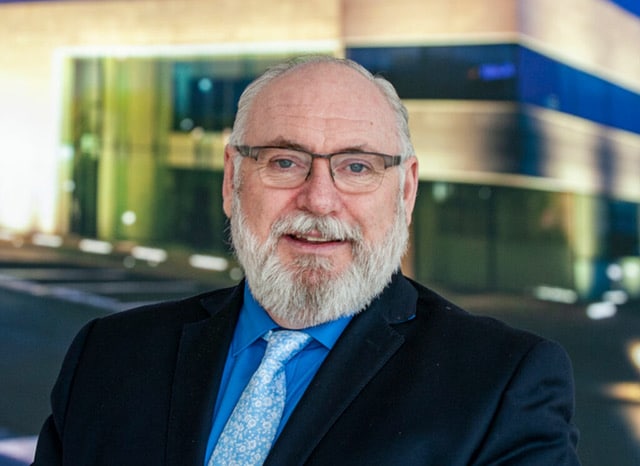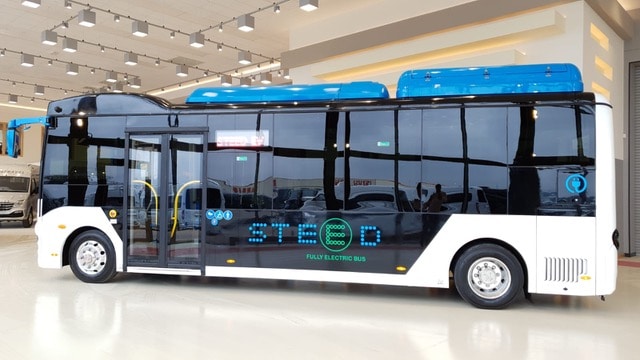Last month, the Government published the Circular Economy Bill which will underpin Ireland’s shift from a ‘take-make-waste’ linear economic model, to a more sustainable pattern of production and consumption, that aims to minimise waste and encourage the repurposing of materials and goods. Establishing a common market for refurbished products is a core part of the EU ‘Right to Repair’ legislative proposal.
So far, much of Government’s focus has been on establishing a sustainable approach to common consumer goods and ensuring greater trust of refurbished products.
General Manager of Harris Bus & Coach, Chris Haughton, discusses TIANA (Transport In A New Age) – a project which aims to repurpose buses prior to the recycling stage, to be reconfigured as community assets.

“Last month, the Government published the much-anticipated Circular Economy Bill, which establishes a clear roadmap – helping Ireland to move away from a single-use, linear economic model, to one which places refurbishment, reuse and repair at its very core.
We know that the implementation of a long-term sustainable economic strategy will command environmental, political and societal action. While repurposing existing products may previously have served as an aspirational ambition, it has now been enshrined as a statutory requirement.
The challenge now rests with all of us, to guarantee that no product, part or package goes to waste, unnecessarily. This starts with ensuring that, where possible, every asset is reimagined to serve another purpose, prior to being sent for recycling, “ stated Chris.
Project TIANA (Transport In A New Age)
Chris continues: “Large-scale ambitions require appropriate actions. As Ireland’s pre-eminent distributor of commercial vehicles, Harris Group has been at the cusp of innovation across transport for many decades. We must acknowledge however, that this latest societal and economic shift presents unprecedented challenges.
The question that should rest at the forefront of our minds: In the context of buses and/or commercial and multi-occupancy vehicles: Is recycling the only viable option? Should recycling be the first port of call? The simple answer is no; and thus, Project TIANA has emerged. Project TIANA calls for every bus, commercial and/or multi-occupancy vehicle (that is no longer in active use) to be repurposed to function as a community asset – a kitchen, dwelling, recreation centre, library, storage space – to name a few potential options. We propose that the repurposing of these vehicles could be financially supported by means of businesses (SMEs or large) sponsoring the refurbishment of individual vehicles.
I recognise that this is an unconventional approach, and one that has yet to be meaningfully explored in an Irish context. Project TIANA is multifaceted; it has the potential to be rolled out in a manner that encompasses more than just environmental and/or sustainable considerations. For example, there is scope to expand the roll-out of the project in such a way that it can provide upskilling opportunities, or act as an outreach programme, to encourage young people to become involved in repurposing the vehicle. This could be implemented as part of a wider temporary employment scheme, to motivate any young person who seeks to enhance their technical and construction skill set.
Repurpose
Project TIANA has three stages – Repurpose, Reconfigure, Redefine. Firstly, in order to repurpose the vehicle, the proposed location in which it will be housed must be cleared – before the interior and exterior of the bus can be upgraded. This process can be undertaken using sustainably sourced or recycled materials; further improving the environmental efficiency of the vehicle and ensuring that the project is carried out at a net-zero carbon cost. The Circular Economy Bill calls for the use and value of products and materials to be maintained for as long as possible. Too often, we discard products and parts with little consideration for how they can be reused. Delivering a circular economy will yield numerous benefits from an environmental, social and economic perspective – and Project TIANA lies at the heart of this.
Reconfigure
Buses by their very nature, are designed for the transportation of people. They are generally watertight, with a designated driver’s area. At Harris Group, the vehicles that we import possess some of the most economical and energy efficient batteries that are currently available on the market. Logistically, under Project TIANA, the driver’s area of a bus can be reconfigured to function as a storage unit, while allowing for the installation of a porch behind the area to provide packed insulation and create a larger space. The rapid availability of pre- designed ‘flat pack’ furniture (provided by the likes of IKEA) means that the entire conversion from bus to fully functioning community asset can take place in a cost-effective, convenient, time-saving manner. The batteries and all other parts can then be safely removed by expert technicians before subsequently being recycled – to once again offset the cost and further reduce the carbon footprint of the project. The finished product will be a reimaged vehicle, that will be fitted out according to the specifications of the project – whether this be a community kitchen, public library, or storage unit.
Redefine
The most recent report from the Intergovernmental Panel on Climate Change AR6 Climate Change 2022: Mitigation of Climate Change demonstrates the pressing need to collectively accelerate our efforts to reduce carbon emissions while investing in a truly sustainable, circular economy. The report made abundantly clear that “any further delay in climate action would be fatal and foolish”. The challenges are significant, the transition appears daunting – this, we cannot deny. Yet, opportunities do lie ahead, if we can leverage and capitalise on the current momentum arising from both the Circular Economy Bill and the IPCC report. Project TIANA will require commitment from stakeholders across the board – from the businesses who will sponsor the refurbishment of the vehicles, to those who will be at the heart of the project, outfitting the interior and exterior of the buses. Now, more than ever, we urgently need to pivot towards novel concepts and innovative approaches.
Under Government’s plans for a circular economy, once a product has reached the end of its life, its parts will be used “again and again – to create further useful products”. At Harris Group, we see little reason why this approach cannot be scaled and/or expanded to include buses and multi-occupancy vehicles. The vision has been conceptualised, the strategy has been formalised – now, our ambitions must be realised, “ concluded Chris.



